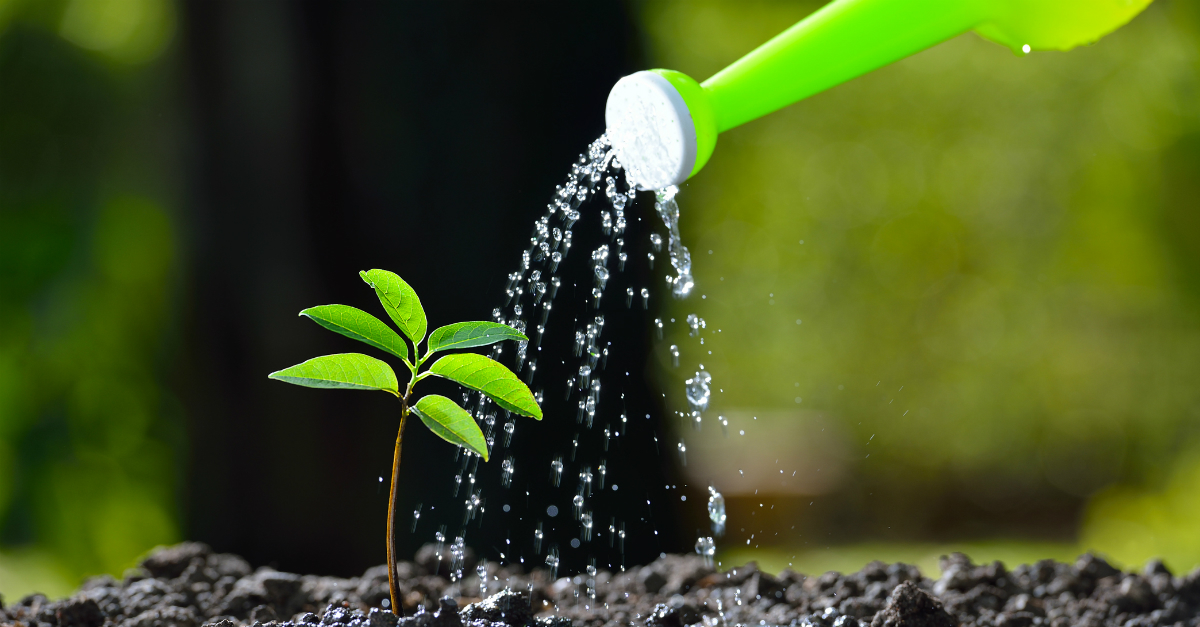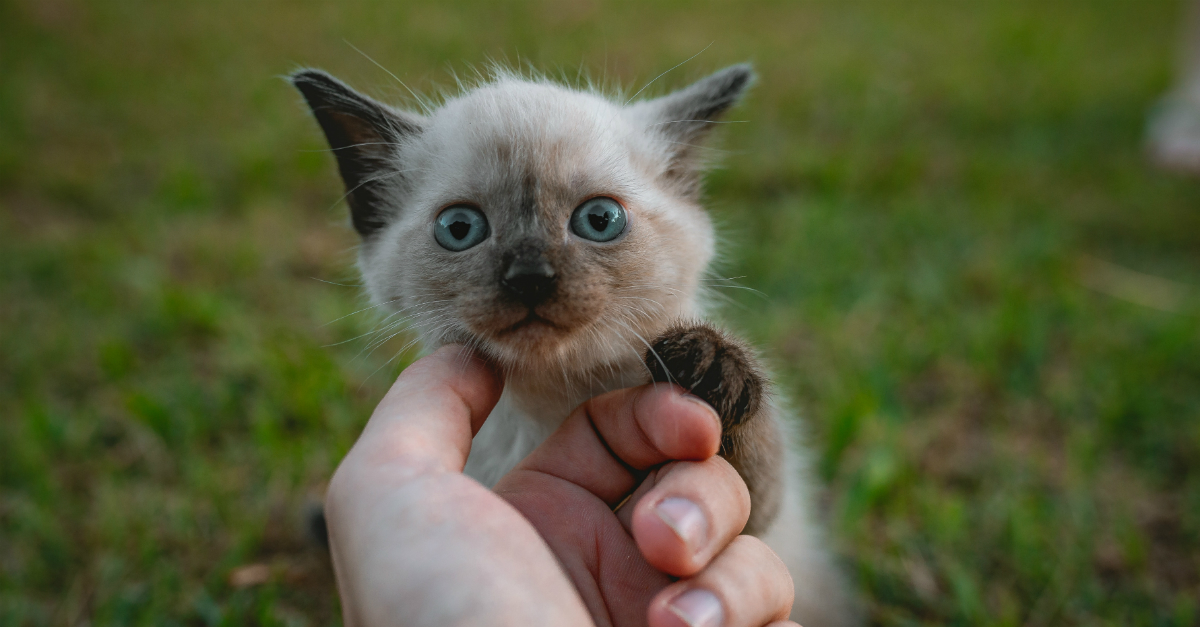Why Caring for Others, the Earth, and Animals Matters to God

The Bible proclaims that God is love (1 John 4:8). God’s love for Creation is evident in Scripture from the beginning, literally. The Bible opens with God meticulously creating the heavens, the Earth, and everything in them (Genesis 1:1-31). As God spoke His creations into being, He carefully inspected each one before declaring it good, bestowing blessings, and moving on to His next design.
In creating mankind, God blessed us above all by making us in His image and entrusting us to be caretakers of the world (Genesis 1:27-28). As divinely appointed trustees of the Earth, we’re to look after Creation in His name.
Since God is love and we’re made in His image, we must reflect His love in our interactions with all of His creations. We can most readily reflect God’s love for the world by caring for each other, our earth, and animals.

God Wants Us to Care for One Another
God cares so deeply about how we—His children—reflect love that His Son summed up the entirety of Scripture into two commands about love: love God with all your heart, soul, and mind; and love your neighbor as yourself (Matthew 22:34-40).
In loving our neighbors and, thereby, loving God, the Lord requires three things of us: justice, kindness, and humility (Micah 6:8).
Care by Showing Each Other Justice
Scripture tells us how we can act justly toward our neighbor. We show one another justice when we do such things as:
- Gently restore people who sin (Galatians 6:1)
- Expose fruitless deeds of darkness (Ephesians 5:11)
- Care for the most vulnerable in society such as orphans, refugees, and the poor (Zechariah 7:10)
- Take care not to accuse each other falsely (Exodus 20:16)
Care by Offering Others Kindness
God’s Word also guides us as to how we can treat each other kindly. We show each other kindness when we do such things as:
- Bear each other’s burdens (Galatians 6:2)
- Comfort each other (2 Corinthians 1:3-4)
- Accompany each other in times of celebration and in times of mourning (Romans 12:15)
- Use our God-given gifts to serve one another (1 Peter 4:10)
Care by Expressing Humility to Others
In addition, Scripture gives us ways to reflect love through humility. We show humility when we do such things as:
- Forgive one another as God in Christ forgave us (Ephesians 4:32)
- Love our enemies (Luke 6:35)
- Trust in the Lord instead of leaning on our own understanding (Proverbs 3:5)
- Seek God’s will in all that we do (Proverbs 3:6).
In caring for our fellow brothers and sisters, we follow God’s command to love one another. We also respect Christ’s warning that so as we do to the least among us, we do to Him (Matthew 25:40).

God Wants Us to Care for the Earth
Scripture is clear that the Earth (and everything in it) belongs to the Lord (Psalm 24:1). As the world’s stewards, we’re to “fill the earth and subdue it” (Genesis 1:28). A “steward” is a guardian in charge of promoting the wellbeing of that which he guards. Moreover, to “subdue” the Earth in a Biblical context means to tame and till the land responsibly so as to make it useful for human use.
The Bible tells us that mankind became accountable for the Earth immediately after Creation when God put Adam in the Garden of Eden “to work it and take care of it,” and sustain himself from the fruit of the garden (Genesis 2:15-17).
In addition, in our stewardship of the Earth, we’re to apply Sabbath rules to our lands, sowing and harvesting for six years and then allowing the soil to rest “unplowed and unused” on the seventh year (Exodus 23:10-11). This time of replenishment benefits the environment, mankind, and animals as it allows the soil to restore its fertility and continue to produce bountifully.
Any haphazard or excessive pollution of the land, air, or water, therefore, violates our obligation to preserve the Earth.
Our guardianship over the Earth benefits all of Creation in that a well-tended environment provides clean air, clean drinking water, scenic views, and healthy food. We must be mindful that there will come a time when we’ll be held accountable for the way we treat our Earth.
Our children will reap environmentally tomorrow what we sow for them today. Further, Scripture tells us in stark terms that the time will come when God will punish those who caused destruction of His Earth (Revelation 11:18).

God Wants Us to Care for Animals
God gave mankind authority over every living thing that moves on the Earth (Genesis 1:28). In giving us this authority, our Father entrusted us with exercising that authority according to His will. God is just and merciful (Isaiah 30:18), and provides for wild animals and birds Himself (Psalms 147:9).
As stewards of the world made in His image, it’s our duty to reflect His justice and mercy in ruling over the animals in our care.
Scripture underscores our responsibility to treat animals humanely. For example, the Bible notes that a righteous person cares for the needs of his animals (Proverbs 12:10). Specifically, we’re to know the condition of our animals (Proverbs 27:23), and allow animals that labor on our behalf to eat while they work (Deuteronomy 25:4).
We’re also to return lost animals to their rightful owners (Deuteronomy 22:1), whether or not we happen to like that owner: “If you meet your enemy’s ox or his donkey going astray, you shall bring it back to him (Exodus 23:4).
Animals, in fact, are so important to God that He tells us that the Sabbath exists in part to give our animals a day of rest (Exodus 23:12).
Notably, as part of our authority over animals, God explicitly gave us permission to use animals for food (Genesis 9:3). It also follows that as part of our duty to protect animals, we should take measures to control their population when necessary to avoid disease or starvation. In killing animals for food or to avoid sickness, however, we’re to do so humanely.
We’re to remember that God cares about even the slightest of creatures, as Jesus reminds us in Luke 12:6:
Are not five sparrows sold for two pennies? And not one of them is forgotten before God.
Therefore, to mistreat animals is to dishonor our duty of care to animals and, thereby, dishonor God.
Caregiving—for others, our earth, and animals—matters to God because He created the world out of love and wants His creations to be valued. As stewards of the Earth, we glorify God when we care for His creations in a just and merciful way.
In giving care faithfully, we’re united in love to one another and to our Earth, a bond intended by God for His creations.
Photo Credit: ©GettyImages/Solovyova
Dolores Smyth is a nationally published faith and parenting writer. She draws inspiration for her writing from everyday life. Connect with her over Twitter @byDoloresSmyth.
Originally published January 30, 2020.







